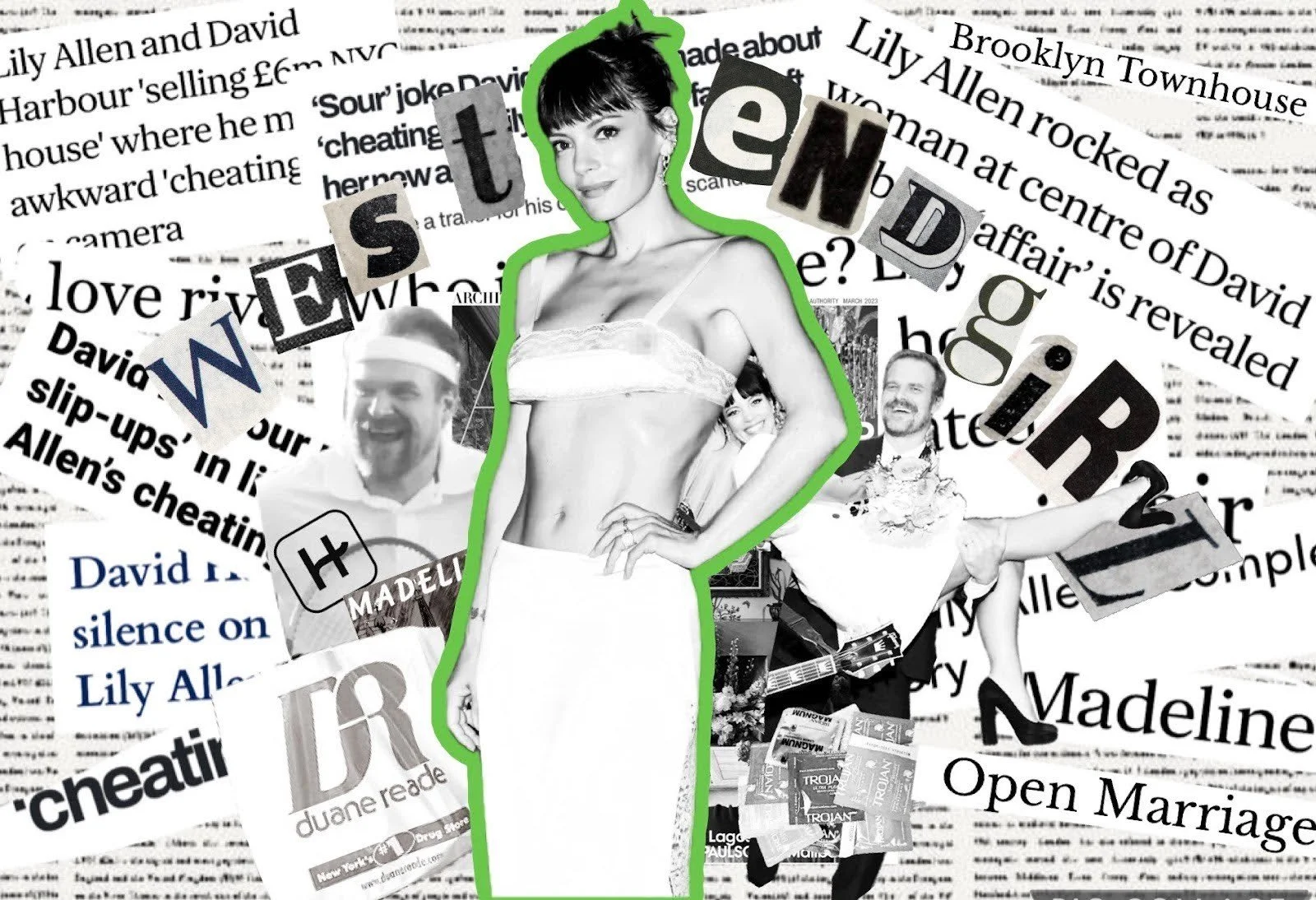The Ethical Contradictions of West End Girl
Image Credit: Bluebell Horner
Just under four weeks ago, Lily Allen quietly dropped the album everyone’s been talking about. West End Girl Winter is well and truly upon us. In this fourteen-track autopsy, Allen explores the decay and death of her highly publicised marriage to actor David Harbour. But you already know this - the rotten details of its carcass are scattered everywhere: tabloid newspapers, social media sleuths, and most unusually, Allen’s own lyrics. Her unvarnished account of their five year marriage is jaw-dropping, but is it right?
West End Girl’s chronological storytelling is refreshingly thoughtful - a rarity amid our current climate of TikTok-bait singles and afterthought filler tracks. Nonetheless, it's fair to say the portrait of Harbour in West End Girl is far from flattering.
Across tracks like P*ssy Palace, Ruminating and 4chan Stan, he is called a cowardly liar and sex addict, and is compared to a group of online misogynists. Allen also apparently quotes Harbour’s less chivalric moments. Highlights include “Why aren’t we f*cking baby?” and that infamous line, “If it has to happen, baby, do you want to know?” which will surely be seared into our collective consciousness for years to come.
I must admit, I winced when I first heard what was inside that “Duane Reade bag with the handles tied.” I felt I’d walked in on something I wasn’t supposed to. Several thoughts crossed my mind: does Harbour deserve this? There are surely millions of married pig-men who, after asking their wives for open marriages, cheat on them nonetheless, and they don’t have their misdeeds broadcast worldwide in a critically acclaimed album! Moreover, if Harbour really is a ‘sex addict’, surely that's an important issue that shouldn’t be trivialised through a catchy chorus? Does he have the right to an equally explicit response? And what about Allen’s own admissions of infidelity in her previous marriage to Sam Cooper? At first glance, West End Girl seems full of ethical contradictions - but do they matter?
Track after track, Allen gives us names, locations, phone calls and text messages; she sings all the dirty details that would normally be confined to the speculations of Daily Mail headlines. “It is really refreshing to hear a woman not be cryptic about heartbreak, to not feel she needs to disguise her emotions and make them more palatable,” says writer, Stefanie Preissner. She also rejects critical pigeon-holing of West End Girl as gossipy: “Gossip is actually a human evolutionary way that women communicate with each other. [...] Gossip has been framed as something derogatory to prevent women from communicating who is dangerous. When people say Lily Allen’s album is gossipy, they are right. She has a very clear message.”
Maybe what really unsettles society about this album isn’t the intimate details, but the fact Allen chooses to reveal them herself; the final lines of Let You W/In ask “So why should I let you win? You’ve taken everything.”
So, is West End Girl an empowering act of artistic defiance, or a distasteful tirade from a woman scorned? Listen and decide.

